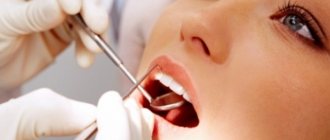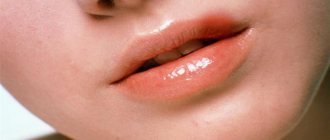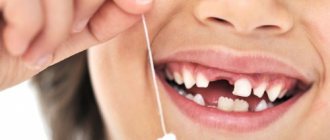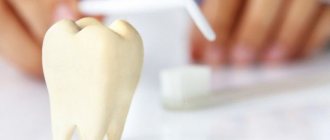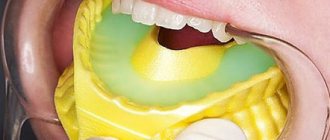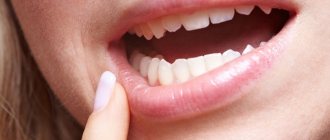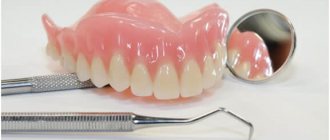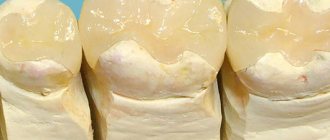Causes
There are a large number of factors that provoke loss of sensitivity in the lower or upper teeth. These include:
- mechanical injuries;
- periodontitis and other tooth root pathologies;
- malocclusion , which disrupts the functioning of the temporomandibular joint;
- errors during implantation and dental treatment;
- damage to the canal in the area of the mandibular nerve;
- stretching, partial or complete rupture of the nerve itself;
- severe emotional stress;
- outflow of blood from the vessels of the facial area;
- syndrome of an allergic reaction to a sharp decrease in ambient temperature.
On this topic
- Other
Find out why teeth rot
- Maria Konstantinovna Tevs
- October 5, 2020
All of these problems can provoke, in addition to jaw numbness, pain or, conversely, loss of sensitivity in the tongue, cheeks or gums. Excessive salivation may be an accompanying symptom.
Any movement of the jaw can be accompanied by unpleasant sensations, including severe pain. If paresthesia is due to the body's reaction to cold, swelling and rashes or blisters may form.
The jaw goes numb: causes of paresthesia of the upper and lower teeth, gums and chin
Numbness and decreased sensitivity in the facial area (paresthesia) are associated with impaired functioning of the trigeminal nerve due to inflammation or damage to its branch. Among the main causes of this neurological pathology, which is difficult to treat, are medical errors in the treatment, extraction and prosthetics of teeth.
Causes and symptoms of jaw numbness
Paresthesia in various manifestations spreads to the gums, part of the lip, tongue, and is accompanied by monotonous pain, burning, and unpleasant sensations when touched. In the acute phase, in addition to numbness of the teeth on the affected side, trismus (strong spasms of the masticatory muscles) and impaired sensitivity are possible.
Among the reasons:
- inflammatory diseases,
- manifestations of ischemia,
- intoxication,
- injuries,
- hypovitaminosis.
Removal of a tooth
During complex extraction of a tooth with twisted or deformed roots, especially the lower one, there is almost always a risk of damage to the branch or alveolar plexus of the trigeminal nerve in the area of manipulation. The risk is especially high if third molars need to be removed. Numbness extends to parts of the gums, lips, cheek, and chin.
Application of anesthesia
Paresthesia is possible due to an error in dosing the anesthetic or after accidental damage to the branch of the trigeminal nerve when performing an injection. The patient has a headache and exhibits signs indicating impaired nerve function.
Treatment tactics are selected depending on the cause of neurological symptoms.
Consequences of implantation
Dental implantation is a complex surgical intervention, after which neuro-dental complications associated with:
- inflammatory processes in the implantation area that have developed due to implant rejection or infection,
- accidental nerve damage during implantation.
Inflammatory processes
Trigeminal neuropathy can develop against the background of inflammatory gum diseases, chronic pulpitis, periodontitis, sinusitis, osteomyelitis, and inflammation of the middle ear.
The pain manifests itself subacutely, its intensity increases slowly. The remaining symptoms are associated with the localization of the pathological process.
Some cases of impaired sensitivity of the upper jaw are associated with pathologies of the infraorbital canal and TMJ arthritis.
INTERESTING: the structure of the human upper jaw, its functions, and its differences from the lower
Injuries
Injuries to the branches of the trigeminal nerve often occur during dental procedures and surgical interventions for ENT diseases and pathologies of the infraorbital canal. The third branch of the trigeminal nerve is the most vulnerable, which is often affected when filling the root canals of the lower premolars and medical manipulations on wisdom teeth.
In case of injury, numbness is accompanied by aching or throbbing pain, a sensation of “pins and needles”. Some patients experience a painful, severe spasm of the masticatory muscles; the patient cannot talk or eat.
Injuries to the branches of the trigeminal nerve are possible due to an accident or a targeted blow to the face.
Such lesions are part of a combined injury, combined with fractures of the jaw bones and/or damage to the temporomandibular joint.
Swelling is noticeable at the site of injury, mobility is severely limited or absent, and in case of TMJ injuries, an incorrect position of the jaws is detected.
READ ALSO: jaw pain: for what reasons does pain occur and what to do to quickly eliminate it?
Deficiency of vitamins and minerals
B vitamins, in particular B1 and B2, play an important role in the functioning of the nervous system. Signs of innervation disturbance appear on both sides. Hypovitaminosis affects the condition of hair and skin; in advanced cases, muscle weakness is observed. B complex vitamins are widely used in the treatment of neurological disorders.
INTERESTING: the concept of innervation and blood supply to teeth
Neurosis
Neurological residual symptoms of neurosis are sometimes manifested by convulsions and spasms of muscles, including mastication. The neurogenic nature of the problem is indirectly indicated by cases of jaw contraction during sleep, without load or other influence. In these cases, patients are prescribed sedatives and antispasmodics and a course of psychotherapy.
Other reasons
Symptoms of trigeminal nerve damage are not always associated with dental diseases.
Signs of neurological problems develop against the background of a migraine or a previous hypertensive crisis, and are part of a symptom complex of rare types of allergies, cervical osteochondrosis, circulatory disorders, and tumor processes. Sometimes the facial muscles go numb due to a general infectious disease (more details in the article: the tongue, gums and palate go numb (reasons)).
How to get rid of the problem?
Any persistent neurological symptoms are a reason to consult a doctor. Self-help and self-medication are strictly contraindicated. If part of your face is numb after treatment, removal, or dentures at the dentist, you should first contact your dentist.
If there are no obvious prerequisites, but you have a headache, facial or chewing muscles are numb, it is better to consult a neurologist. It is possible that you will need to consult an ENT specialist, an allergist, a cardiologist, or a surgeon. READ ALSO: what to do if you have a headache after wisdom tooth removal?
The course of treatment is prescribed after it becomes clear why the patient has impaired innervation of the jaw. The doctor may prescribe:
READ ALSO: Why does it bring cheekbones and teeth together?
- antibiotics,
- non-steroidal anti-inflammatory drugs,
- drugs that improve metabolic processes,
- neuroprotective agents,
- B vitamins,
- sedatives,
- antihistamines,
- antispasmodics,
- antidepressants,
- tranquilizers.
In addition to drug therapy, a cycle of physiotherapeutic procedures is prescribed. For organic lesions of the trigeminal nerve, long-term treatment is required for several months. Neuropathy does not always respond successfully to treatment; sometimes a stable complex of residual effects is formed.
Preventive measures
Since the causes of paresthesia are too diverse, it is almost impossible to eliminate all risk factors, but everyone can monitor their dental health. Regular preventive examinations at the dentist, identification and treatment of dental diseases in the early stages significantly reduce the risk of neurological problems, one way or another associated with dental lesions.
Loading…
Source: https://spacream.ru/stomatologiya/pochemu-nemeet-verhnyaya-i-nizhnyaya-chelyust-desny-i-zuby-kak-ustranit-problemu
Diagnostics
In most cases, the dentist determines the cause of the condition visually or after interviewing the patient. However, sometimes additional research is required to clarify the diagnosis:
- tomography of the cranium;
- Dopplerography of blood vessels;
- X-ray of the jaw.
Competent treatment is impossible without establishing the exact cause of the syndrome, so if a doctor prescribes diagnostic procedures, you should not refuse them, otherwise the effectiveness of therapy can be noticeably reduced.
Diagnostic measures
Having confirmed a tooth bruise, treatment is carried out depending on the degree of injury. The doctor performs the following procedures to avoid serious complications, destruction of the incisor and tissue:
- If the patient experiences severe pain, a pain reliever is administered before the examination.
- After a visual examination, the patient is sent for an X-ray examination. To clarify complications and obtain complete information, it is necessary to familiarize yourself with the image.
- A computed tomography scan can be performed to obtain a three-dimensional image.
IMPORTANT:
In the event of a bruise, the image will indicate that a slight expansion has occurred in the periodontal fissure.
- It is possible to conduct electroodontodiagnostics, which will allow us to find out what the condition of the patient’s pulp is after injury. To do this, nerve bundles are exposed to electric current, checking their excitability. For comparison, the diseased and undamaged teeth are tested.
IMPORTANT:
After 21 days, the procedure must be repeated.
- Your doctor may also prescribe transillumination. To do this, a beam of light is passed through the injured incisor, causing the shadow to be reflected. And if even minor microcracks appear during a bruise, they will be easy to see in a stream of light.
Basic treatment methods
Tooth numbness is usually treated by a dentist. First of all, you should find out the cause of the syndrome. If you notice signs of paresthesia, you should make an appointment with a dentist.
In some cases, the syndrome is corrected without surgery. Sometimes it will be necessary to perform an operation using one of the methods of jaw microsurgery.
The main goal of therapy in both cases is to restore sensitivity to the jaw nerve. It is extremely important to take into account that if the disease continues for three months, the likelihood of successful treatment is noticeably reduced, and if paresthesia persists for more than one year, it becomes almost impossible to completely restore tooth sensitivity.
On this topic
- Other
Ways to relieve tooth sensitivity
- Maria Konstantinovna Tevs
- October 4, 2020
If the face is hypothermic, doctors recommend taking antihistamines and trying to increase body temperature to increase blood flow.
During treatment in a dental office or during the rehabilitation period after surgical correction of the mandibular nerve, physiotherapeutic treatment procedures are of great benefit:
- electrophoresis, which is usually used together with painkillers;
- UHF procedures;
- laser therapy;
- exposure to affected areas with diadynamic currents.
All these procedures are not mandatory and are prescribed based on the doctor’s opinion of their appropriateness.
If the root one is unsteady
Often a healthy tooth begins to hurt sharply and become loose. Permanent teeth can also become loose, even if they are molars. You don’t need to endure it, but go to the dentist. The doctor prescribes disinfectants: rinsing with chlorhexidine and furatsilin solution, gel applications.
If the gums are inflamed, then anti-inflammatory and regenerating drugs are prescribed. (“Trental”, “Olazol”, etc.). Physiotherapy also helps stop the process. For example, vacuum massage, darsonval, ultrasound procedures.
After stopping the inflammatory processes in the oral cavity, the dentist strengthens the teeth in the correct position and applies a temporary splint. If a wisdom tooth is loose and hurts, it is most often removed since it does not play a special role in the chewing process.
Numbness during dental implantation
Incorrectly performed dental implantation is one of the most common factors leading to numbness of the front teeth. Sometimes the main reason is unsuccessful anesthesia, since during the injection process the needle may well damage the jaw nerve and lead to loss of its sensitivity.
The syndrome occurs as a result of erroneous determination of the length of the implant. In this case, after the procedure of its implantation, the nerve is either injured or pinched.
There are several stages of numbness, which can be caused by a dentist’s mistake during installation of implants.
On this topic
- Other
Find out what to do if a piece of a tooth breaks off
- Maria Konstantinovna Tevs
- October 4, 2020
At the stage of neuropraxia, only partial numbness is observed, which usually lasts several hours and disappears either on the day of surgery or the next morning.
At the stage of axonotmesis, symptoms persist for about a month and are accompanied by pain.
The most severe form is neurotmesis, in which numbness is accompanied by the appearance of a scar and disappears no earlier than two months after implantation.
All of these listed forms are not the norm, so the appearance of any stage of jaw numbness should be discussed with your doctor and undergo an additional course of treatment if necessary.
Consequences and complications of dislocation
Without treatment, crooked teeth can be completely lost. Frequent complications also include:
- formation of tumors (granulomas inside vascular tissue, root cysts);
- chronic periodontitis (inflammation of the periodontal tissues);
- purulent processes (in case of infection);
- malocclusion.
Sometimes replanted teeth are rejected and their roots are resorbed. This may occur several years after the injury. To prevent such consequences, it is recommended to consult a doctor promptly and undergo regular preventive examinations.
On our website you can find contacts of clinics that effectively and successfully correct the consequences of dislocations and prevent complications.
Numb gums: is it always dangerous?
Patients often seek help from a dentist if their gums become numb and accompanying symptoms of the inflammatory process develop. Most often, the reason for the appearance of this symptom is associated with medical intervention due to diseases of the oral cavity or dental prosthetics. In order to understand whether the condition in which the gums become numb is dangerous, you need to seek help from a specialist and conduct a thorough diagnosis. Based on the data obtained, the doctor will be able to determine the reason why the gums are numb, prescribe effective treatment and determine the further prognosis.
Prevention
Since the cause is usually mechanical trauma, there are no special preventive methods to protect against the syndrome. However, to minimize the risks of this problem, you should keep an eye on the following things:
- qualifications of the treating dentist and prosthetist;
- availability of free time for proper rest;
- face protection from low temperatures.
Teeth numbness is an unpleasant syndrome that does not go away on its own. If you delay in contacting a doctor, the changes will develop into an irreversible stage. Moreover, paresthesia can act as a symptom of a serious illness. That is why it is worth taking this pathology seriously and starting to eliminate it in a timely manner.

